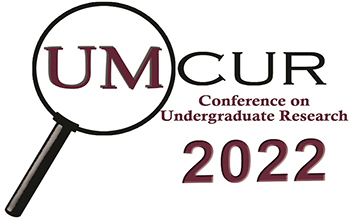Project Type
Poster
Faculty Mentor’s Full Name
Greg Campbell
Faculty Mentor’s Department
Cultural Anthropology
Abstract / Artist's Statement
Establishing equity in museum staffing will widen the range of potential visitors. By contrasting the way museums were in the past with the present, this exploration will outline diversity and inclusivity issues in the museum world. I will take the information I have gained from lectures and my own research and present an argument for museum inclusivity and diversity. Encouraging the general public and internal museum workers to consider diversity and inclusivity in museum studies is conducive to the overall success of the institution. In this independent study, I will explore diversity and inclusivity in the museum world. I will use two texts, The Inclusive Museum Letter and Diversity, Equity, Accessibility, and Inclusion in Museums, as well the supplementing Anthropology of Museology course taught by Professor Campbell, to support my argument. I will effectively describe the ways in which museums have evolved from a Eurocentric source and the implications of this development. Using census data, one can clearly see that the individuals who are hired in museums are overall unbalanced in diversity. This research is currently ongoing, however, preliminary findings indicate that there is a huge disconnect in museum staffing with regards to diversity in race and gender. Nascent analysis shows that the origin of museums began as a European construct tracing back to Greek and Roman times, and thus museums have primarily developed into patriarchal and white-dominated spaces. This research is important to our society, because America is a place of many stories. There are many stories from different people in distinct walks of life. In order to effectively convey those stories, the stewardship of these museum objects should be carried by more than one type of person.
Category
Social Sciences
An Exploration in Museum Diversity and Inclusivity
UC South Ballroom
Establishing equity in museum staffing will widen the range of potential visitors. By contrasting the way museums were in the past with the present, this exploration will outline diversity and inclusivity issues in the museum world. I will take the information I have gained from lectures and my own research and present an argument for museum inclusivity and diversity. Encouraging the general public and internal museum workers to consider diversity and inclusivity in museum studies is conducive to the overall success of the institution. In this independent study, I will explore diversity and inclusivity in the museum world. I will use two texts, The Inclusive Museum Letter and Diversity, Equity, Accessibility, and Inclusion in Museums, as well the supplementing Anthropology of Museology course taught by Professor Campbell, to support my argument. I will effectively describe the ways in which museums have evolved from a Eurocentric source and the implications of this development. Using census data, one can clearly see that the individuals who are hired in museums are overall unbalanced in diversity. This research is currently ongoing, however, preliminary findings indicate that there is a huge disconnect in museum staffing with regards to diversity in race and gender. Nascent analysis shows that the origin of museums began as a European construct tracing back to Greek and Roman times, and thus museums have primarily developed into patriarchal and white-dominated spaces. This research is important to our society, because America is a place of many stories. There are many stories from different people in distinct walks of life. In order to effectively convey those stories, the stewardship of these museum objects should be carried by more than one type of person.
